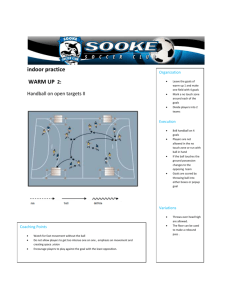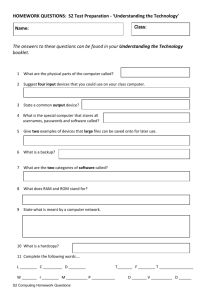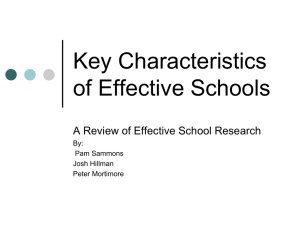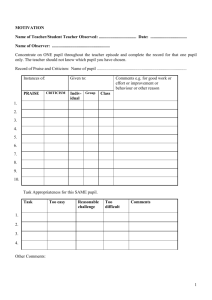GREEK SOCIAL GAMES What do you need
advertisement
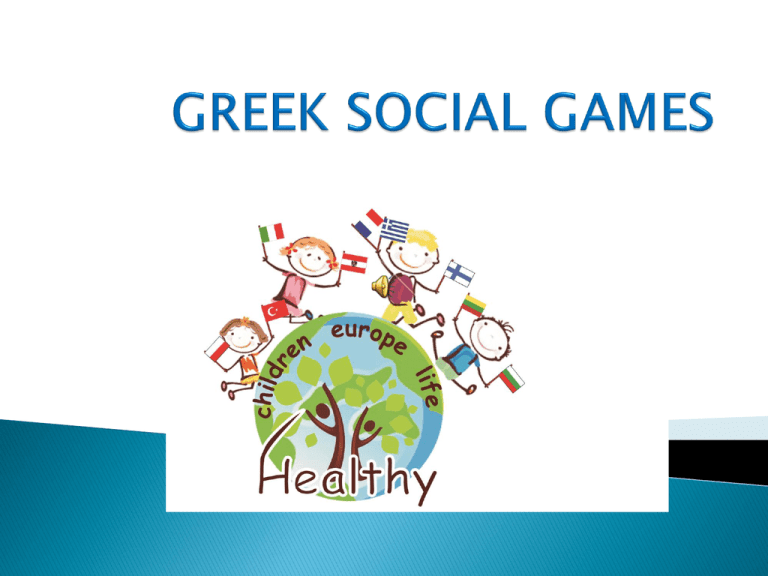
What do you need: a small ball and flash cards of European countries Instructions: Play the game into two groups. One pupil from each group picks a card but doesn’t tell his/her classmates what it is. He/she throws the ball to one of his/her classmates in the other group. This pupil asks a question to guess the country and throws the ball back, when he/she gets the answer. Then the first pupil throws the ball to another classmate for another question and so on. You can ask up to 5 questions to guess the country. Your team gets one point for a correct guess. The first team to get 5 points is the winner. Look at these examples for questions: Is your country in the south or in the north of Europe? Is it big or small? Is it surrounded by sea? What is your country popular for? What are the colours of your flag? To play, you will need flash cards with facial expressions as neutral, happy, sad, fear, anger, disgust, surprise etc. Instructions: Put the cards face down on the table. Then players decide together on some story elements must appear in the story (e.g., a jungle, a man, and a banana). The goal is for the players to take turns making up the narrative, building on each others ideas and (eventually) making use of all the required story elements. To begin, first player picks a card, and starts the narrative. He can take the story into any direction he likes, but he must incorporate the emotion depicted on the card. After a minute or two, the next player picks a card and continues the narrative. Players continue to take turns until they have used all the required story elements and reached a satisfying conclusion. Your class wants to raise money for a charity. Collect things you don’t use any longer (clothes, books, toys, etc.) to sell them at the school bazaar. PUPIL A You are the customer and you are trying to buy the things you want. Ask questions like: How much is it/ are they? What is it made of? etc. PUPIL B You are trying to sell your things to the customer. Answer the customer’s questions Role playing activities simulate real-life situations that involve emotional or social development. The children act out how they could handle the situation in a socially acceptable way, keeping the emotions of the other person in mind. Instead of acting out the situation themselves, kids can use puppets, dolls or action figures. To play you’ll need slips of paper and two Christmas bags Instructions: Play this game in two teams. In 5 minutes, write as many Christmas words as you can on slips of paper and put them in the Christmas bag. Then come to the board and act out (you can’t speak) a word from the opposite team’s bag. If the players in your team guess the word correctly, your team gets one point. Play the game for 10 minutes. The team with the most points is the winner
